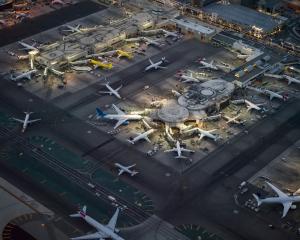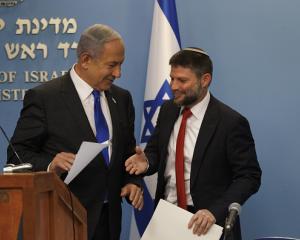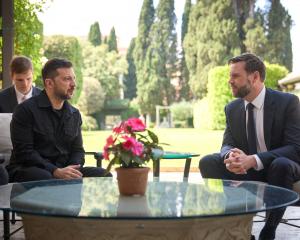Abu Muhammad al-Golani is an Islamist fanatic, a head-chopper (although only in moderation) and the leader of the Nusra Front, an al Qaeda affiliate that is classified by the United States as "terrorist''.
He spent almost a decade killing American occupation troops and Shia civilians in Iraq as a loyal member of the Sunni extremist organisation that is now called Islamic State before going home to Syria in 2011.
He was sent home to create a Syrian clone of what was then called "Islamic State in Iraq'', on the orders of Abu Baqr al-Baghdadi, the leader of Islamic State and now the self-proclaimed "caliph'' of all Muslims.
Mr Golani named the Syrian branch the Nusra Front, and it did so well that he broke with Islamic State and went out on his own in 2013.
There was a three-month turf war between Islamic State and the Nusra Front in Syria in early 2014 that killed an estimated 3000 jihadis.
Islamic State won it and now controls most of eastern Syria (and all of western Iraq).
Mr Golani managed to hang on to northwestern Syria, where the Nusra Front and another extreme Islamist organisation, Ahrar al-Sham, now completely dominate a rebel alliance that also includes several smaller "moderate'' outfits.
So you would not expect Mr Golani to favour a peace deal that left the brutal Assad regime, secular in form but Shia-dominated, in power in Damascus.
And indeed he does not: in a rare interview recently, he condemned the peace deal being cooked up by the US and Russia as "unacceptable''.
It was, he said, a plot to merge more moderate rebel fighters with Mr Assad's forces in order to fight extremist groups such as his own and Islamic State.
Mr Golani was right to be suspicious, and yet he may go along with the deal in the end, because it isn't really a permanent peace settlement that is being discussed.
It's actually just a ceasefire that will leave all the players in Syria in control of the territory they now hold - except for Islamic State, which they can then all concentrate on destroying.
This is the sort of Machiavellian thinking that caused Russian President Vladimir Putin to accuse Washington recently of "dividing terrorists into good and bad ones'', but it's just as much a part of Russian thinking.
When Moscow started bombing the rebels in Syria in September to save the Assad regime from collapse, it bombed them all indiscriminately: the Nusra Front, Islamic State, even the "moderates'', if it could find them.
But it quickly became clear that what Russia had in mind, after stabilising the battlefronts, was precisely what Mr Golani was condemning: a ceasefire that would effectively partition Syria between the Assad regime and the various rebel groups, and enable them all to turn on Islamic State.
You can't admit that that's what you are doing, of course, so you talk in terms of a peace settlement.
That's what Russian Foreign Minister Sergei Lavrov and US Foreign Secretary John Kerry were doing in Moscow on Tuesday, and the result is that a United Nations Security Council resolution endorsing the Syrian peace process will probably be passed today.
The current round of "peace talks'' began in Vienna on October 23, with no Syrians present, just Russia, the United States, Turkey and Saudi Arabia.
It subsequently expanded to include about 20 countries, and the organisers are now deciding which Syrians can attend the next round of talks, probably early in the new year.
On one side, obviously, will be the representatives of the Assad regime.
On the other side will be some of the leaders of the armed opposition, but not all of them.
Islamic State won't be there, of course, and at the moment the Nusra Front says it won't be either.
Since those are the two most powerful groups fighting the Assad regime, what's the point of talks?
But the Nusra Front's close ally, Ahrar al-Sham, did show up at last week's meeting in Riyadh, where decisions were being made on which groups could attend the peace talks.
At one point it walked out - and then, after some further thought, it added its signature to the joint declaration.
The Islamists of the Nusra Front and Ahrar al-Sham are clearly in two minds about a ceasefire (disguised as a peace agreement).
On one hand, it would leave the Assad regime in power.
On the other, it would give them time to consolidate their control over the territory they now hold, and maybe to eliminate their most dangerous rival, Islamic State. So in the end, they may go along with the idea.
It wouldn't be perfect, and it wouldn't necessarily be permanent either.
But it would stop most of the killing; it would at least contain if not eliminate Islamic State; and it might even let some of the refugees go home.
It's basically a Russian initiative, but Moscow is wisely letting the US take the lead now.
If anybody has a better idea, please let us all know.
● Gwynne Dyer is an independent London journalist.












